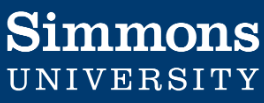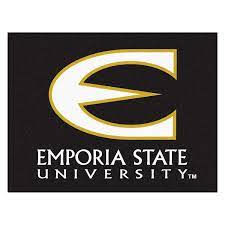Top 5 Best Online Doctor of Library Science Degrees

Find your perfect college degree
In this article, we will be covering...
It isn’t the most popular doctoral program in the world, but library science, also known as library and information science, isn’t the least popular either.
A bachelor’s and master’s degree in this field can be easier found than a doctorate because most doctoral programs need face-to-face classes and experiential learning experiences – traditional formats are also tricky to come by. This degree also often includes residencies and the dissertation process, which require students to live on campus.
Quick audio summary:
Overview
In addition to providing information needs for the community and its people, the librarian’s career also offers many chances to shape and direct that community. Information studies or information science is a term used to describe a library science doctor’s academic field.
This area of study, which includes specializations in particular subsets, focuses on how to categorize and use data or objects and highlights the value of preserving knowledge and increasing literacy.
Methodology
A Doctor of Library Science online may be offered as a blended program, enabling students to pursue the degree while attending graduate school to earn the degree.
If you’re looking for the best online Doctor of Library programs, we can help! We put together five of the nation’s top-tier graduate schools and the doctorates they offer in this field, and recommend them to prospective students based on these ranking factors:
- Delivered largely as a hybrid doctorate program, enabling future Doctor of Library degree holders to complete some parts of the coursework online, and complete required experiential activities including residencies,
- Features a rigorous academic environment that emphasizes the Doctor of Library student or candidate’s skills in this research-intensive career track while also equipping them for the actual practice,
- Offers online doctorate-level courses that also produce strong communicators and detail-oriented professionals fit for the career,
- Hosted in a top-rated LMS or Learning Management System through which doctorate students access their coursework and attend web-based lectures and other online activities,
- Doctors of Library and seasoned professionals as professors,
- Presents financial aid for Online Doctor of Library students who qualify,
- Earned proper accreditation.
Read our Methodology for our ranking process for this doctorate program.
The 5 Best Online Library Science Doctoral Programs
Texila American University

Ph.D. in Library Science
Texas American University offers Doctor of Philosophy in Library Science online classes. The Ph.D. in Library Science requires students to complete 90 credit hours in a span of 3 years. The program has experienced faculty members who provide academic support and have been assigned expressly to assist students in meeting their obligations to their studies on schedule, in addition to its vast online resources and world-class teaching facilities and educational assistance.
To enroll, applicants need relevant professional experience, a master’s degree in the field, and a statement of research interest. Doctoral students in the university receive no scholarship. They can apply for other financial aid opportunities, such as grants and student loans.
The Doctor of Philosophy in Library Science is one of the few fully online Library Science degrees. This online degree offers one of the most extensive e-journals that help students during their thesis, dissertation research, and planning. The program utilizes an innovative learning approach, such as the BRICS models, case studies, forum discussions, contextual project work, article reviews, and research projects.
University of Buffalo

Ph.D. in Information Science
The University of Buffalo offers an online Doctor of Philosophy in Library Science with a required residency for one week on campus. The degree requires students to complete 72 credit hours; students can reduce the coursework by transferring credits from their master’s degree in the relevant field. Most students studying for this degree are working professionals, so the school made this degree highly flexible and adaptable.
To apply, students need a bachelor’s and master’s degree. Unlike other online degrees, this Ph.D. does not require GRE/MAT.
This Ph.D. in Information Science program is one of two of its kind. The school offers various teaching and service activities that help students create their significant research findings. The coursework emphasizes human-computer interaction, which prepares students for the fast-paced digital technology industry.
Simmons University

Ph.D. in Library and Information Science
The Doctor of Philosophy in Library & Information Science at Simmons University is a hybrid doctoral program. The Ph.D. degree requires students to complete 36 credit hours and research projects or courses at the master’s or doctoral level in other fields. The supervised preparation in the three areas of research, teaching, and service makes this adaptable Ph.D./LIS program special.
Applicants must possess a master’s degree in library and information science from an ALA-accredited school or a master’s from a reputable institution in a relevant field. In addition, prospective Ph.D. students must submit recent results from the Graduate Record Examination (GRE).
The Ph.D. program is a small, powerful program made up of students who form a close-knit cohort that works together to complete the dissertation. You’ll receive full support from faculty members and the school’s centers for learning.
Emporia State University

Ph.D. in Library and Information Management
Emporia State University offers a Doctor of Philosophy in Library and Information Management that is available online, with synchronous sessions. The Ph.D. program requires students to complete 56 credit hours and choose one of the three concentrations: Instructional Design and Technology, Information System, or Informatics.
Students will be prepared for the qualifying exam and subsequent dissertation research by completing a course in teaching and learning in organizations.
Emporia State is selective in enrolling students. Applicants will be evaluated based on educational and professional achievements. A master’s degree in a relevant field is required for admission.
Emporia State University is part of the five university partnerships, the American Library Association. This association has assembled a group of 8–10 doctorate candidates from diverse backgrounds to further social justice and racial fairness in library and information science programs.
In addition, the ALA fellowship will create future LIS faculty committed to fostering racial equity through teaching and research.
The University of Pittsburgh

Ph.D. in Library and Information Science
While not online, the University of Pittsburgh offers one of the best Doctor of Philosophy in Library Science degree programs. This doctoral degree requires students to complete 54 credit hours beyond the master’s degree, totaling 72 minimum credit hours. Ph.D. students will work closely with professors with years of expertise in library science.
To gain admission, applicants must possess a master’s degree in any relevant field, standardized test scores, a statement of research interest, and a GPA of 3.5 on a 4.0 scale. Pitts wants applicants with a variety of academic and professional backgrounds.
Graduates will develop a working knowledge of library science by conducting original research methods, developing research findings, and publishing results. This will build an understanding of library and information science beyond the master’s degree.
Common Courses for Online Doctor of Library Science Programs
Foundation of Information Science
This course will develop your knowledge of information science, including behavior, ethical principles, organizational communication, and scholarly communication. You’ll also become proficient in information retrieval, search, management, and presentation.
Human Information Behavior
This course analyzes organizational problems and procedures in designing information systems to solve those problems. Students apply interface design and database principles to implement information systems.
Information Use for Organizational Effectiveness
This course covers the fundamental ideas of how information, people, and technology interact to affect organizational effectiveness.
Retrieval and Organizing Systems
This doctorate-level course introduces students to the fundamental principles, methods, and ideas of information retrieval, data mining, and organizing.
Retrieving and Analyzing Information
This course introduces students to information-seeking procedures, quality assessment of received information, and data synthesis.
Tools for Information Literacy
This course provides ideas and resources for information literacy, such as networked information systems, computer applications, and software use and maintenance.
Typical Coursework for a Doctor of Library Science Degree
Ph.D. degrees in library science or information science are designed to equip students with the highest educational level in the field. Online and on-campus programs typically last two years; however, some programs can last up to three years.
Library science doctorates usually require students to complete coursework within the allotted time, including an 18-hour review, research presentation, comprehensive exams, and dissertation that includes a proposal, dissertation work, and defense.
The dissertation is the most significant part of a doctorate. Universities have the right to cancel your candidacy if you don’t pass the dissertation. This will also reflect on your academic record.
Professional Associations for Students Majoring in Library Science
Doctoral students in library and information science programs are bound to enter a field that is expanding quickly. Students studying library science are encouraged to join and participate in professional organizations.
The top organizations for students in a doctorate in library science are:
- American Library Association
- Association for Information Science and Technology
- Art Libraries Society of North America
- Association of Independent Information Professionals
- International Federation of Library Associations and Institutions

Frequently Asked Questions
What is the Doctor of Library Science program?
Students who complete a program of study in which they learn about topics linked to library science obtain a degree in library science. A doctorate in library science may lead to higher careers in academic and archive environments.
Doctoral holders in library science frequently have positions as data managers, college and university professors, and library directors.
What salary can Library Science Doctorate graduates earn?
According to the Bureau of Labor Statistics, the average annual salary of librarians with bachelor’s and master’s degrees is $61,660. Hence, graduates with a doctorate in library science should expect to be paid at least a 25% increase.
What’s the job outlook for Library Science graduates?
The Bureau of Labor Statistics is estimating that through 2032, employment opportunities for librarians and library media experts may grow by 3%. Since more individuals are utilizing libraries, they might require librarians’ assistance to locate books or other resources.
Additionally, librarians filter through and organize those items for the library; the proliferation of online information also raises the demand for librarians.
Is a Librarian a good career?
Becoming a librarian is a fantastic career choice for those who like organizing and disseminating information, working with data, and giving other people knowledge and resources.
Are there any necessary certifications in the field of Library Science?
Although you should confirm your state’s laws, most states need certification. Depending on the state, you might need a teaching license. There are also voluntary certificates available.
Key Takeaways
- A library science degree is best for students who want to work as librarians or in librarianship-related fields. Students are better prepared to work in various library or archive contexts with the knowledge they get through a library science degree.
- Candidates for a Ph.D. in Library Science specialize in a field of study that is relevant to data curation, information systems, or librarianship.
- An analyst to an archivist can benefit from the knowledge and abilities that a library science or information science doctorate can offer. The careers have favorable growth prospects and reasonable wages.
Additional Resources:




